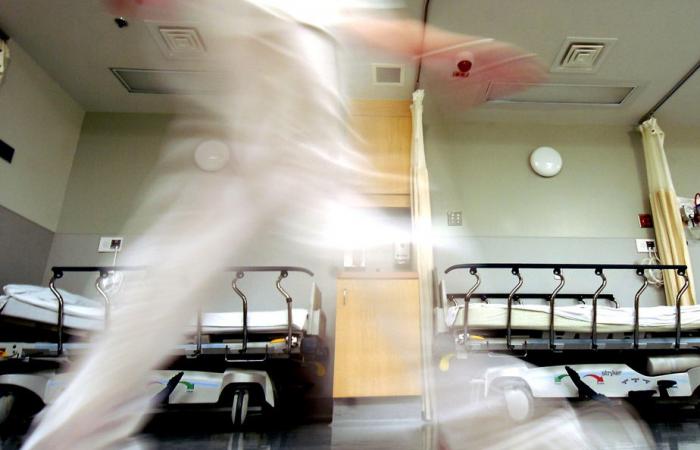Table of Contents
The increase will affect those who consume a lot of gas the most. A home in a family house with a typical annual consumption of 3,000 cubic meters in Prague or South Bohemia will pay more than two thousand crowns a year.
In other parts of the country in the GasNet distribution area, and not Pražská plynárenská and E.ON, this price increase will be about half.
An additional eight to fifteen percent is to be paidFor distribution, a similar increase is planned for permanent monthly payments.
For lower consumption, the increase will be more moderate. For example, a family that cooks and heats water with gas and consumes 1,800 cubic meters per year will pay 1,500 CZK more per year from January, about half of that in the GasNet distribution area.
Energy prices have frozen, experts advise to fix them
Economic
And people who only cook with gas will pay about 160 crowns more per year in the GasNet network, and in Prague and southern Bohemia, 330 and 255 crowns respectively more.
“In the case of gas, both the distribution component and the fixed salary of the supplier will increase. Growth will also exceed inflation,” confirmed Ušetřeno.cz energy analyst Tomáš Vrňák to Novinkám.
According to him, the average price increase across different households with different consumption will reach around 400 crowns per year. “Gas is about a tenth more expensive for everyone,” summarized Kalkúlátor.cz analyst Lukáš Kaňok.
It will have a big impact on arrangements
A price increase will have the full effect on everyone who has a fixed price, because they will pay the same for the gas itself and their payments for the regulated part of the price will increase.
Customers who sign a supply contract now will pay less next year compared to the prices from the beginning of this year, even if the price increase of the regulated part is taken into account. And that’s because gas prices themselves from suppliers are cheaper than they were at the beginning of the year. However, the increase in payments for distribution and permanent monthly payments will cut into their savings.
“It’s about how long we compare. Regulated payments change at the start of January, so we could compare gas payments from January this year. And they will be cheaper from next January, because the price of the gas itself has dropped significantly since then,” said ENA analyst Jiří Gavor to Novinkám.
At the same time, Jiří Tyleček from XTB pointed out that further development of gas prices is uncertain. “The monthly and annual gas contract in the Netherlands is currently at an annual high. At the same time, I see that some distributors are still reducing prices from the beginning of next year. In my opinion, however, these are the last iterations of price reductions by big players who were not very flexible in this regard in the past,” said Tyleček.
According to him, in the first half of next year, we may reach a situation where some companies will start raising prices again.
“It will depend on the course of the winter, but also, for example, whether Russian gas will enter Central Europe. In addition, of course, the development of demand will be important, which will go hand in hand with economic development in the Central European region,” he said.
According to him, it is therefore time to negotiate prices. “It is possible to imagine a situation where the price of energy would fall, for example with the end of the war in Ukraine and the rapid return of Russian energy to Europe, but we are more likely to see stagnation at higher levels or moderate growth on gradually . Due to lower settlement prices compared to indefinite term contracts, the settlement should pay off,” he said.
Price increases due to transport disruptions
The increase in prices for gas distribution comes because almost no gas travels abroad through the Czech Republic, but it is necessary to pay for the operation of the system.
“The domestic transport system serves to a greater extent to ensure delivery to domestic customers. Without the operation of this critical infrastructure, the supply of gas to these customers could not be implemented at all,” Michal Kebort, spokesperson for the Office of Energy Management, told Novinkám.
According to Gavor, the cost per unit of gas transported is therefore higher and must be measured among the same number of customers.
The Teplárenské sdružení was strongly against the regulator and its proposal to increase the price of the regulated part. According to him, the authority prefers the profit of the state gas transporter Net4Gas to the protection of consumers. The company Net4Gas was bought last year by the state operator of the electricity transmission network ČEPS.
According to Gavor, it doesn’t matter if the company is owned by the state or not. And the governor says so too.
“This is nonsense. The Energy Act is clear. According to the law, regulated payments must cover the legitimate costs of system operators, regardless of whether they are owned by anyone, the state or a private person,” said Kebort.
Even after cutting off supplies to Austria, Russian gas continues to flow in the same volume to Europe
Economic

2024-11-20 04:58:00
#Gas #payments #increase #thousand #year #January #News
 - How will the increase in gas prices affect households in the Czech Republic, especially those who only use gas for cooking and heating?
- How will the increase in gas prices affect households in the Czech Republic, especially those who only use gas for cooking and heating?
– What factors contribute to the rise in gas prices in the Czech Republic, and how does the distribution system play a role in determining the final price paid by consumers?
– How does the recent increase in gas prices compare to historical trends, and what are some potential scenarios for future gas prices in the region?
– What could be done to mitigate the impact of gas price increases on consumers, such as renegotiating contracts or seeking alternative sources of energy?
– What role does international politics, specifically the ongoing conflict in Ukraine, play in shaping gas prices in the Czech Republic and Europe?
– How will the increased cost of gas distribution affect the profitability of gas distributors and their incentives to invest in infrastructure development?
– What is the justification for the regulated portion of gas prices, and how does it balance the need for reasonable consumer prices with the requirement for income adequacy for gas distributors?

